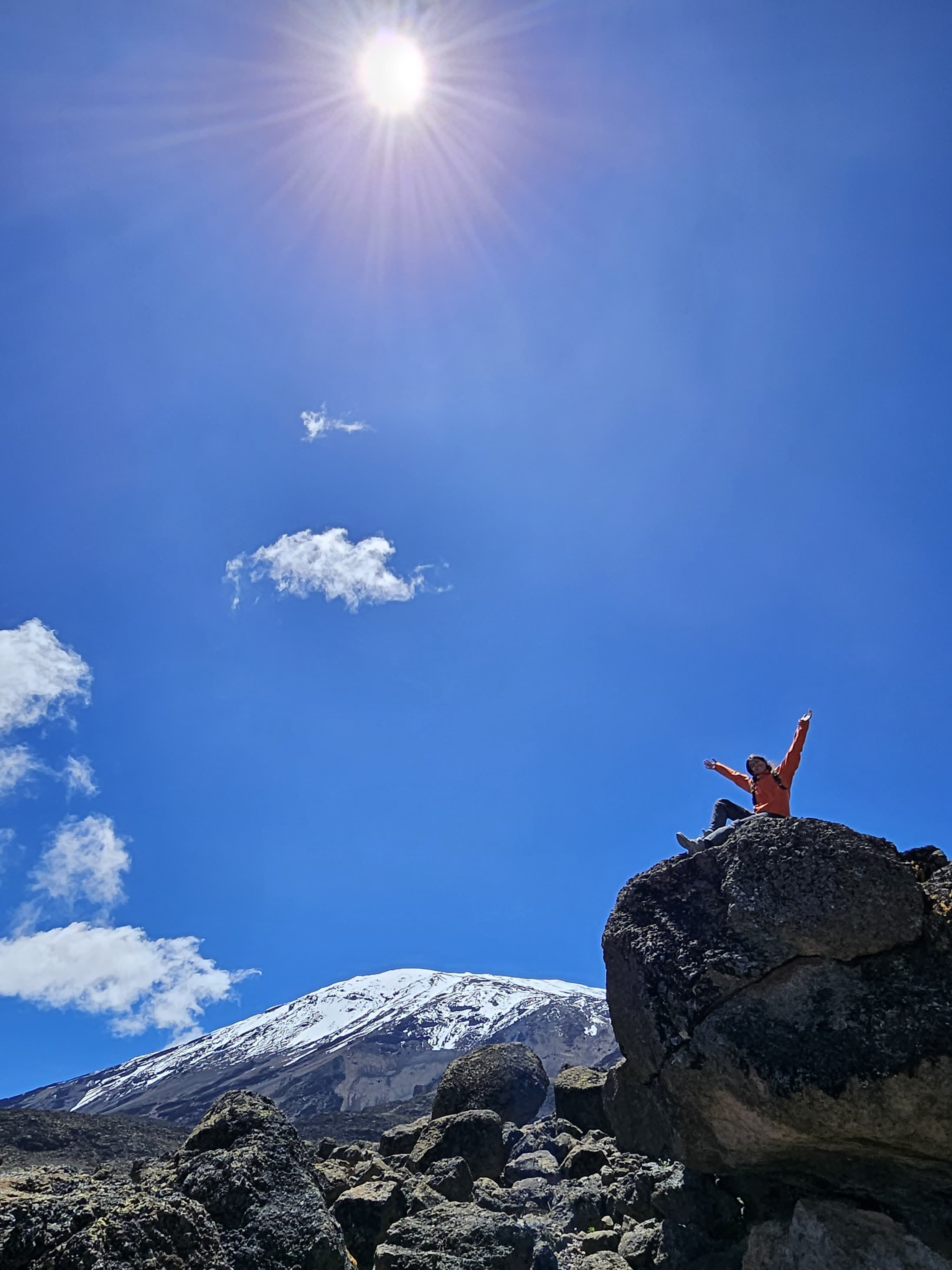Kilimanjaro Expedition
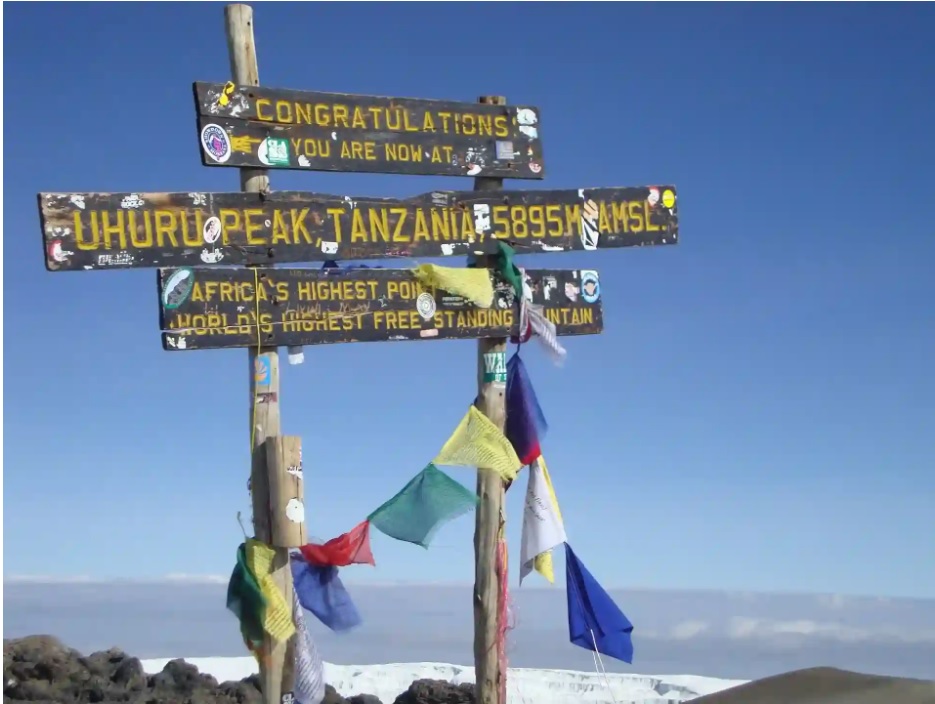
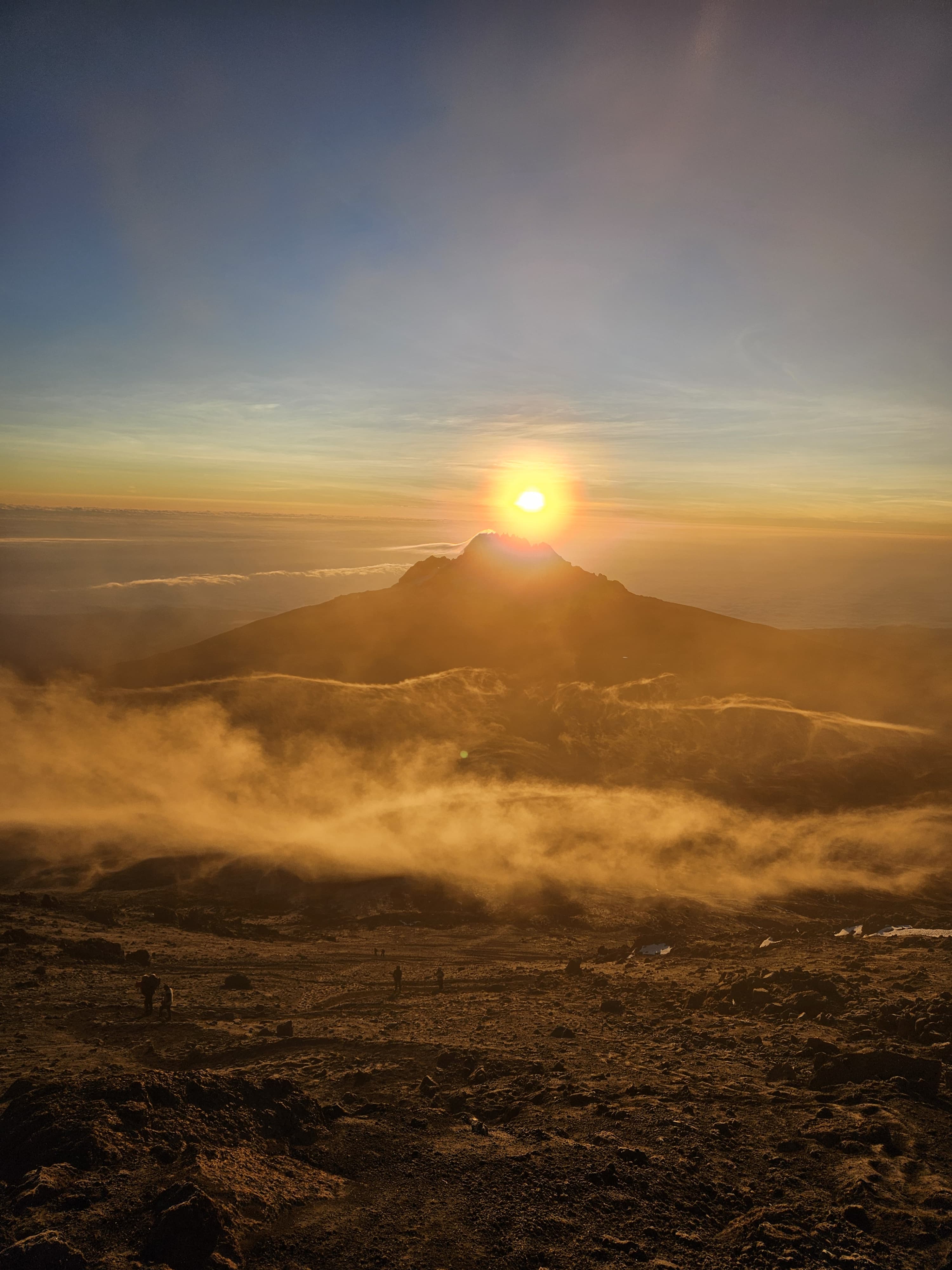
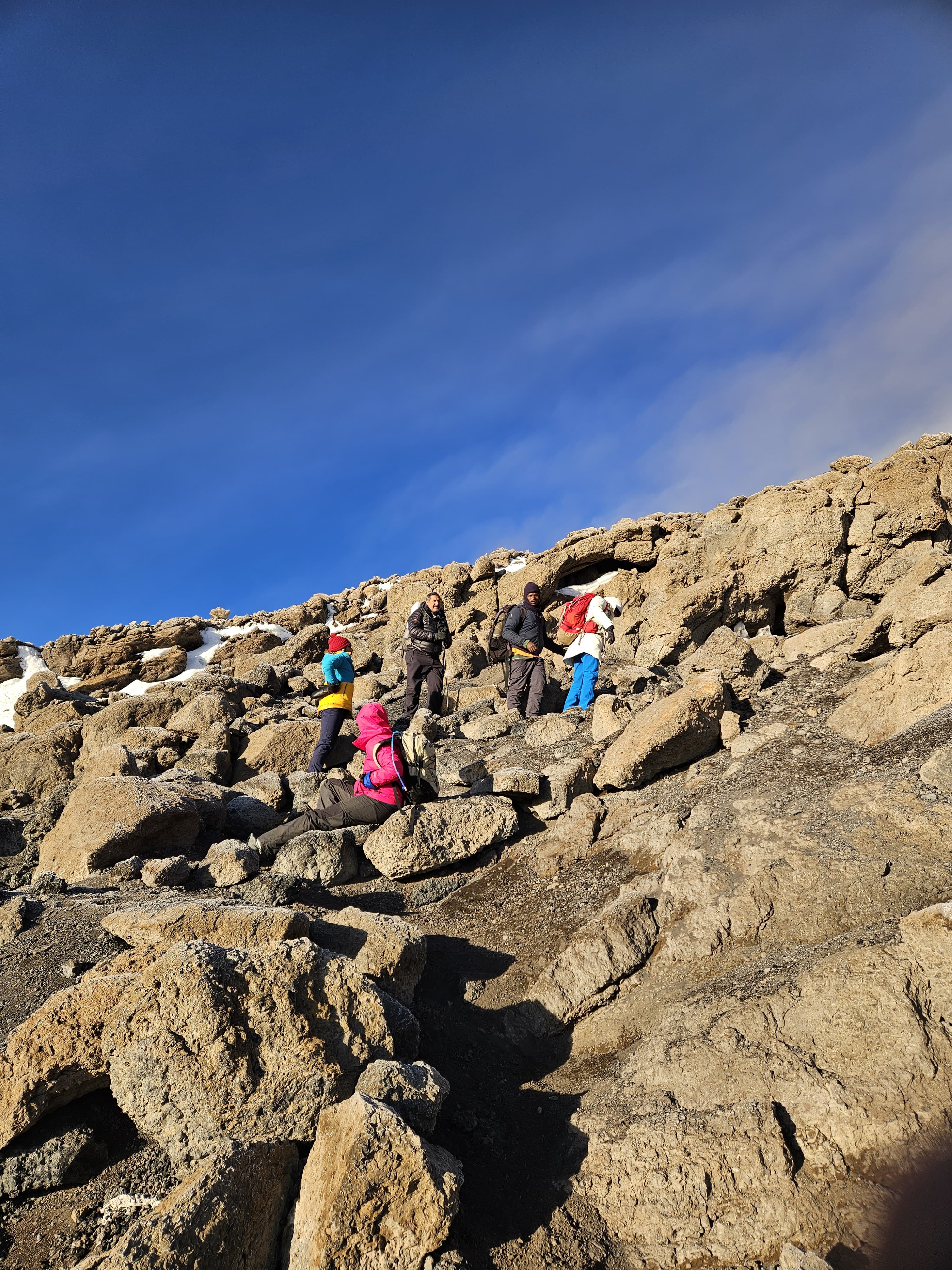
The Ultimate Trekking Experience
Kilimanjaro is unique among the world's tallest mountains because it doesn't require technical climbing skills to reach the summit. Instead, trekkers can ascend to the top by hiking, making it accessible to anyone with determination, fitness, and the will to succeed. The journey to the summit, however, is no easy feat—it requires careful preparation, acclimatization, and mental resilience.
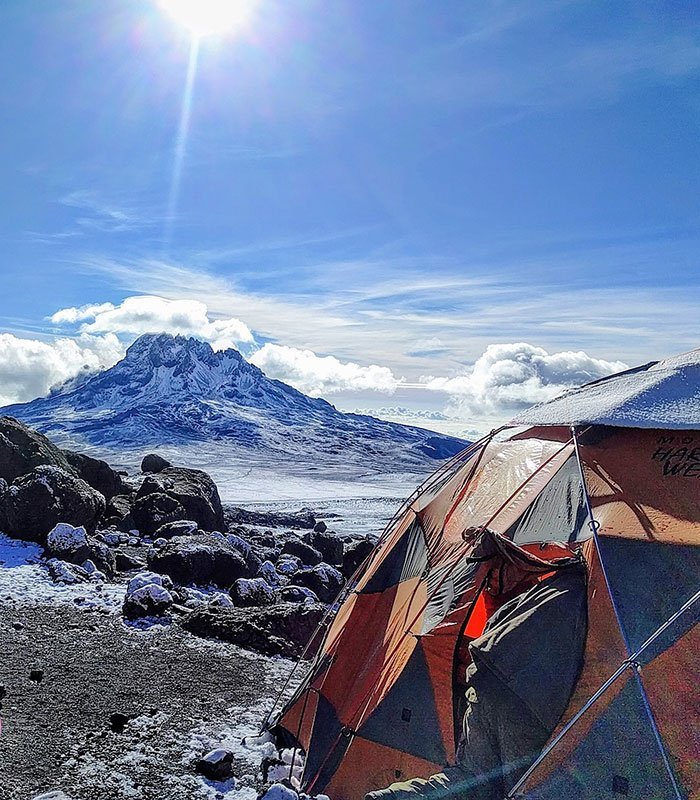
Conquer Africa’s Highest Summit
Mount Kilimanjaro, the highest peak in Africa, stands as a symbol of adventure, challenge, and breathtaking natural beauty. Rising 5,895 meters (19,341 feet) above sea level, this iconic mountain in Tanzania is a dream destination for trekkers from around the globe. Whether you're an experienced mountaineer or a determined beginner, trekking to Kilimanjaro’s summit is an unforgettable journey that tests your limits and rewards you with unparalleled views.
program itinerary
Day 1 - Arrive in at Kilimanjaro Airport. Transfer to Moshi. Overnight stay in Moshi in a hotel
Day 2 - Moshi to Mkubwa Camp - Drive from Moshi or Arusha to the Londorossi Park Gate. From here follow a forest track in a 4WD vehicle for 11 km (45 minutes) to Lemosho Glades. From the Glades, walk for 3 hours along beautiful forest trails to the Mti Mkubwa (big tree) campsite.
Day 3 - Trek from Mkubwa Camp (9,020 ft.) to Shira Camp (11,485 ft.) - The trail gradually steepens, enters the giant heather moorland zone, then crosses the Shira Ridge at 11,810 ft. and drops gently to Shira Camp 1 located by a stream on the Shira Plateau.
Day 4 - Shira Camp 1 - Moir Hut Camp (13,800 ft.): 10 km; 6-7 hrs. - Trek across the Shira plateau, east toward Kibo’s glacier peak. Shira is one of the highest plateaus on earth, averaging 12,500 ft. We immediately veer away from the tourist trails toward the northeast edge of the Plateau to reach Moir Camp. The trek is about 4-5 hours over easy terrain. Moir camp is an isolated and seldom used camp affording views over the Shira Plateau.
Day 5 - Moir Hut Camp - Buffalo Pofu Camp (13,200 ft.): 12 km; 7-8 hrs. - Begin the morning trek heading out of the moorland and into the stark alpine desert, on a steep ridge off the main trail, and begin our venture on the Northern Circuit Route. The total trekking time is about 5-7 hours. From the Pofu Campsite you will enjoy a magnificent view into Kenya's wild lands to the north.
Day 6 - Buffalo Camp - Kikelewa Caves Camp (11,800 ft.): 15 km; 8-10 hrs. - Proceed onward through valleys and over ridges through the alpine desert and moorland, continuing our circuit to the east, enjoying a vast mountain wilderness to ourselves. Trekking time today is 5-7 hours.
Day 7 - Kikelewa Caves Camp - Mawenzi Tarn Camp (14,160 ft.): 4 km; 4 hrs. - Trek 3-5 hours steadily upward to reach a placid mountain tarn (lake) at the foot of the majestically rising steep ridges of Mawenzi, The second highest peak in Kilimanjaro. The camp here is nestled along the tarn in a protected alcove with magnificent views towards the steeply rising rocks of Mawenzi.
Day 8 - Mawenzi Tarn Camp - Outward Bound Camp (15,585 ft.): 7.5 km; 7 hrs. - The trekking time today is 5-7 hours, though a relatively easy hike across the wide saddle between Mawenzi and Kibo. The trek takes you across the massive saddle- the crossing is impressive and the landscape spectacularly stark. The temperatures turn cold as you near the foot of Kibo, reaching Outward Bound Camp after 5-7 hours of trekking. Prepare all your gear for the day ahead, and turn in early to rest. A resupply of fresh food and supplies will reach camp on this afternoon.
Day 9 - Outward Bound Camp - Uhuru Peak (19,340 ft.) - Millennium Camp (12,770 ft.): 12 km; 10-12 hrs. - A midnight wake-up call is the start of a long trek. You begin trekking at 1 AM up the winding path of endless switchbacks. It is a steep and demanding climb and we will be walking slowly in the light of our headlamps on a switchback trail through loose volcanic scree to reach the crater rim at Gillman’s point (5,685m), a convenient point to rest for a short time and enjoy the spectacular sunrise over Mawenzi. From your camp to the rim of the crater (Gillman’s Point (18,750 ft.) to Uhuru Peak, the trekking time is about 7-8 hrs. You will stop at Hans Meyer cave on the way, the famous place where Kilimanjaro first western climber described in his journals. Once you arrive at Gilman’s Point at the edge of the crater, the trail to the summit is less demanding, and is reached after a further 1.5-2 hours along the snowy crater rim (depending on the season). After a short time at the summit, retrace your steps back to Gilman’s Point, then summon your strength again for further descent to Millenium Camp for the night.
Day 10 - Millenium Camp - Mweka Gate (6,000 ft.): 13 km; 6 hrs. - Descend straight to the gate (6 hrs.), where you’ll have lunch and will be awarded climbing certificates. Drive an hour back to town for that long awaited shower!
Day 11 - After breakfast transfer to the JRO airport to board the flight back home. (45 km/1 hr.)
Camping on the go
Along the trekking route, we pitch tents at campsites maintained and run by the Kilimanjaro National Park organisation. Separate areas are allotted for boys and girls.
a ticket to discover your true potential
program
Kilimanjaro Expedition
care and safety
Being well fed and hydrated is crucial to staying energised for the demanding days. There is wholesome and nutritious food for every meal in the course of the expedition. Water, soup or juice provided during hydration breaks through the day. The instructor team comprises of an wilderness first aider, certified mountaineers, local expert guides, experiential education specialist and a behavioural learning facilitator. For the comfort and special needs of girls, there is a female instructor also part of the group. Travel insurance policies are issued for all participants, and we have the support of excellent emergency services with quick response time
travel details
Please contact us for Flight Recommendations.
fitness requirements
While technical climbing skills aren't required, Kilimanjaro is physically demanding. Training should focus on endurance, strength, and cardiovascular fitness, with plenty of long hikes to prepare your body for the multi-day trek.
